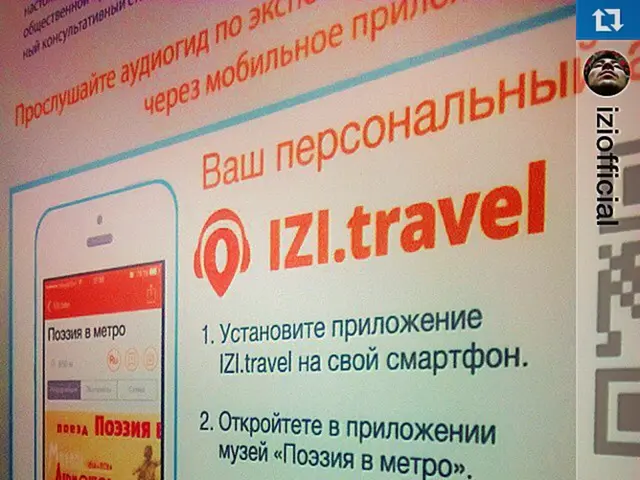Russia Intends to Deploy Personal Envoys for Diplomatic Communications
Moscow - In a move to bolster domestic communication and counter Western opposition, the Russian parliament, the State Duma, has approved a law to create a state-powered messaging app. This new digital platform, with a focus on "secure virtual communication," will allow citizens to liaise with state and local government officials, as well as integrate various state services into the chat program.
Sergey Boyarsky, the head of the Committee on Information Policy in the Duma, explains that the app will enable citizens to verify their age through digital checkouts and even check into hotels without the need for paper documentation. This innovative app will also integrate an electronic signature, ID function, and other state documents into one streamlined program, including online education services.
The development of this state-backed messaging app will be subject to government decision, with the social network VK reportedly in the running to provide the platform, given its state-linked ownership and status as a Russian Facebook clone, originally created by Telegram founder Pavel Durov.
Russian Internet Censorship: A Tightening Grip
Since the commencement of Vladimir Putin's orders to invade Ukraine, the Russian government has increased control and censorship over the internet. Providers of Western and independent content have experienced lawsuits, blockages, or severe restrictions, as in the case of YouTube, on account of "alleged defamation of the Russian military." There has also been a rise in concerns regarding the utilization of popular messaging platforms like WhatsApp, Facebook, or Signal by the authorities.
Behind the Scenes: The Driving Forces
Despite recent events, Russia's tightened internet control and the use of messaging apps have remained relatively unchanged due to the Ukraine conflict. To examine the forces that drive these developments, it's essential to consider the following aspects:
Domestic Internet Regulations
The Russian government has continued to tighten its internet regulations, primarily with the "sovereign internet" law, which empowers the state to have better oversight over online traffic. Implementing this law has allowed Russia to monitor and censor content more effectively, although its primary objective appears to be implementing domestic policy.
External Pressures
The international sanctions imposed on Russia due to the invasion have impacted various industries, but the effect on internet services remains indirect, resulting in difficulties with the importation of certain technologies and maintaining international connectivity, which, in turn, may indirectly affect internet stability within the country.
The Role of State Messaging Apps
The creation of state-backed messaging apps in Russia forms part of a broader strategy to move away from Western platforms and establish domestic alternatives. This shift is motivated by the desire to reduce dependence on foreign technology and enhance state supervision over communication. The Ukraine conflict's impact on these apps has been minimal.
Accessibility and Usage
Although the Ukraine conflict has not caused significant disruptions to messaging apps within Russia, the broader geopolitical tensions and sanctions have increased the scrutiny of Russian tech companies and their services in foreign markets.
- Amidst Russia's push for domestic communication, a state-backed messaging app is under development, set to integrate finance and technology services, allowing citizens digital access to various state services.
- As the government continues to strengthen its internet regulations and promote state-controlled messaging apps, concerns about potential limitations on privacy and security for technology users persist.



